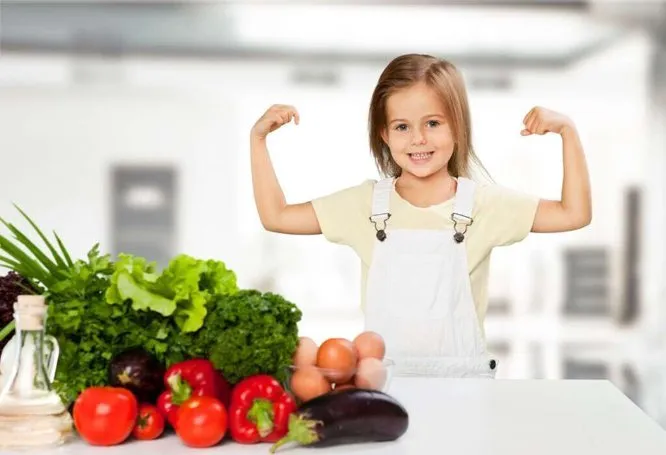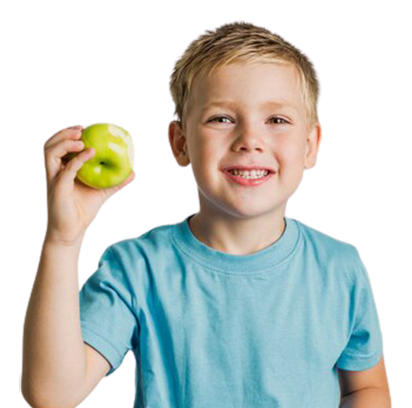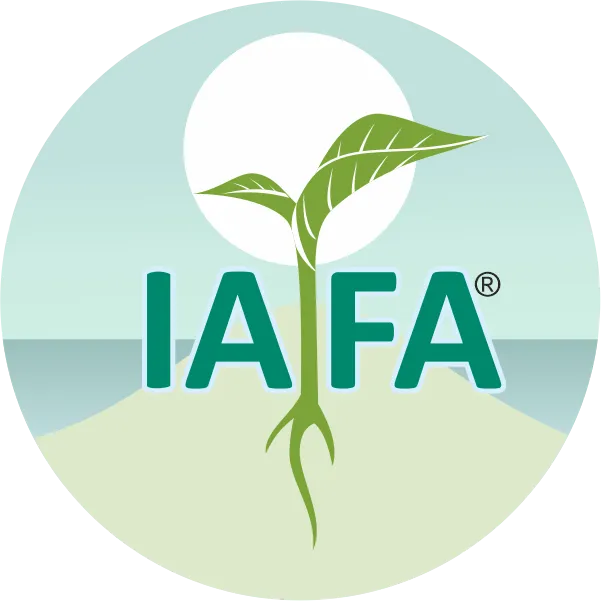On This Page
Healthy Food for Children
The relationship between eating a healthy diet and positive health outcomes is well known; nurturing healthy eating among children therefore has the potential to improve public health. A healthy diet occurs when one’s usual eating patterns include adequate nutrient intake and sufficient, but not excessive, energy intake to meet the energy needs of the individual. Also a healthy diet can have a profound effect on children’s health, helping to maintain a healthy weight, avoid certain health problems, stabilize their moods, and sharpen their minds. A healthy diet can also have a profound effect on a child’s sense of mental and emotional wellbeing, helping to prevent conditions such as depression, anxiety, bipolar disorder, schizophrenia, and ADHD. Eating well can support a child’s healthy growth and development into adulthood and may even play a role in lowering the risk of suicide in young people.
Some basic guidelines which can be adopted while considering a healthy diet for children include,
- Add fruits and vegetables into the daily routine, aiming for the goal of at least five servings a day.
- Make it easy for kids to choose healthy snacks by keeping fruits and vegetables on hand and ready to eat. Other good snacks include low- fat yogurt, peanut butter and celery, or whole-grain crackers and cheese.
- Serve lean meats and other good sources of protein, such as fish, eggs, beans, and nuts.
- Choose whole-grain breads and cereals so kids get more fiber.
- Limit fat intake by avoiding fried foods and choosing healthier cooking methods, such as broiling, grilling, roasting, and steaming. Choose low- fat or nonfat dairy products.
- Limit fast food and low-nutrient snacks, such as chips and candy. Limit sugary drinks, such as soda and fruit-flavored drinks. Serve water and low-fat milk instead.
Baby care within 1 year of birth is very crucial and should be watchful in terms of being healthy and fruitful. In this regard, Ayurveda ensures specific protocol for baby care. This should be adopted only after assessing the general health of baby.
In Ayurveda, age from birth to 16 years described as Baalya as per Acharya Sushruta. Ayurveda depict different approaches for the prevention, diagnosis and management of BalaRoga. The traditional science explored use of different therapeutic approaches for the management of BalaRoga such as; herbs, remedies, Rasayana&Panchakarma. But it is suggested that
precaution is better than cure, thus rules of Dinacharya & Ritucharya need to be adopted in Bala Avastha to maintain discipline life style which help to retain normal health. The first and foremost one is to maintain a healthy diet. From the breast feeding stage itself, a healthy regimen is included in Ayurvedic science. It includes,
- Stanya (breast milk) feeding from the birth develop immune system of Shishu; Stanya feeding is suggested by Ayurveda for new born baby for DehaPushti (nourishment) DhatuVardhana (development of tissues) and BalaVardhana. (attaining strength)
- Light liquid diet may be given after 6-8 months; heavy diet should be avoided which may cause constipation.
- Ayurveda also advised Phalaprashana (fruit feeding) and Annaprashana (normal food feeding) Samsakara for BalaAvastha for proper physical and mental development.
- Ayurveda advocated that carbohydrates, protein, fat, minerals and vitamins enriched Aahara boost immunity of growing children; thus food stuff must encompass all essential component of balance diet.
- As per medical science very cold or very hot food must be avoided in BalaAvastha to prevent any chances of Prakriti- Virudha. (against the constitution of body)
- The liquid and solid diet in BalaAvastha must be planned as per the Dosha (the functional forces), Kala(time) and Prakriti (body constitution) so as to avoid Virudha-Aahara (incompatible foods) which may result disease conditions.
Also, there are some Pathya and Apathya Aahara according to the basis of three functional forces, ie, doshas. Depending on your child’s body constitution, the following foods should be had/ avoided:
For a Kapha dominant child:
- Reduce mucus-causing foods such as cold milk, cheese, sweets, and processed and canned foods.
- Give them spicy foods like ginger, garlic.
For a Pitta dominant child:
- Avoid spicy foods, sour foods.
- They should avoid playing in hot sun. This will increase pitta and skin rashes may appear.
For a Vata dominant child:
- Keep warm. Avoid the cold things.
- Sweet taste is good for these children like honey, fruits.

“At Dr. Gupta’s IAFA we are providing awareness about developing a healthy diet and lifestyle in children in order to prevent all the lifestyle disorders. Institute of Applied Food Allergy® ensures that our health care system better meets the needs of all about your child’s health”.
Making health care better. Together.!!! Dr. Gupta’s IAFA for your child’s future
– Dr. Sahil Gupta (B.A.M.S., M.H.A.)
Ayurvedic Allergy Specialist
CEO & Founder of IAFA®
At last, Easier Healthy Food for Child’s Growth Management

Trusted by
More than 90,000 Patients

Convenient
at-Home Treatments

9.2 / 10
Customer Satisfaction Score
For children to have a stronger gut, disciplined dietary routine and an active lifestyle with regulated screen time is a must. Buildup of stress due to academic pressure or a generally competitive social set up, can affect the digestion in a child. So it is equally important to introduce children to a few minutes of meditation after the practice of light Yogasanas. Yoga can direct the restlessness in a child and transform the Rajas (principle of restlessness and activity) into Sattva or calmness and sense of lightness.
Postures include:-
- AdhoMukhasvanasana
- Vrikshasana
- Virabhadrasana
- Tadasana
- Uttanasana
- BaddhaKonasana
Frequently Asked Questions
Question: What are the healthy food that can be included in children ‘s diet?
Answer: Foods that you must include in your child’s everyday diet include, Honey, Milk, Ghee, Fruits and Vegetables, Include millets, protein-rich and calcium-rich foods as they’re growing, Chyawanprash, which is rich in VitaminC
Question: What are the foods that can be avoided while considering Children’s diet?
Answer: Avoid combinations like fruits with milk, milk with salt, milk with honey, cooked food with fruits, etc. Food should be warm when eaten. Not too hot, not too cold. Stay away from spicy food, aerated drinks and caffeine, and maintain the best hygiene to combat the bacterial infection.
Question: What kind of foods are recommended by Ayurveda for Children?
Answer: According to Ayurveda,to increase immunity in kids one can modify diet and habits to better balance the Doshas in the child. This will not only increase the immunity and stamina of the child but also enhance mood and happiness
Was this Page Helpful?
So IAFA Guidance about Healthy Food for Child’s Growth is Just 3 Steps Away!

01. Connect With Us
Book an appointment to share queries of your child health.

02. Consult With Us
Consult with Ayurvedic Pediatrician of IAFA®.

03. Root Cause Treatment
Get an accurate diagnosis and treatment for your child.
Healthy Food for Child’s Growth- Case Studies
Real Case Studies of Successfully Treated Patients from All Around the World by IAFA Ayurveda®

5-Year-Old Shih Apso Dog Recovered from Canine Peripheral Neuropathy – A Case Study
This case study presents a 5-year-old Shih Tzu-Lhasa Apso crossbreed dog (pet)…

9 Year Old Female Patient Recovered from Chronic Allergic Bronchitis – A Case Study
This case study presents a 9-year-old female patient who has successfully recovered…

12-Year-Old Child Recovered from Sun Allergy and Polymorphous Light Eruption (PMLE) – A Case Study
This is a case study of a 12-year-old child who has successfully…

40-Year-Old Female Patient Recovered from Dyshidrotic Eczema and Onychomycosis – A Case Study
This case study highlights the successful recovery of a 40-year-old female patient…
Read More Articles

Bed Wetting (Shayyamutra)
Bedwetting is an embarrassing habit in some children where they are unable…

Attention Deficit Hyperactivity Disorder – ADHD (Vatika Unmada)
Contact IAFA Ayurveda® to get safe and natural remedies for the treatment…













